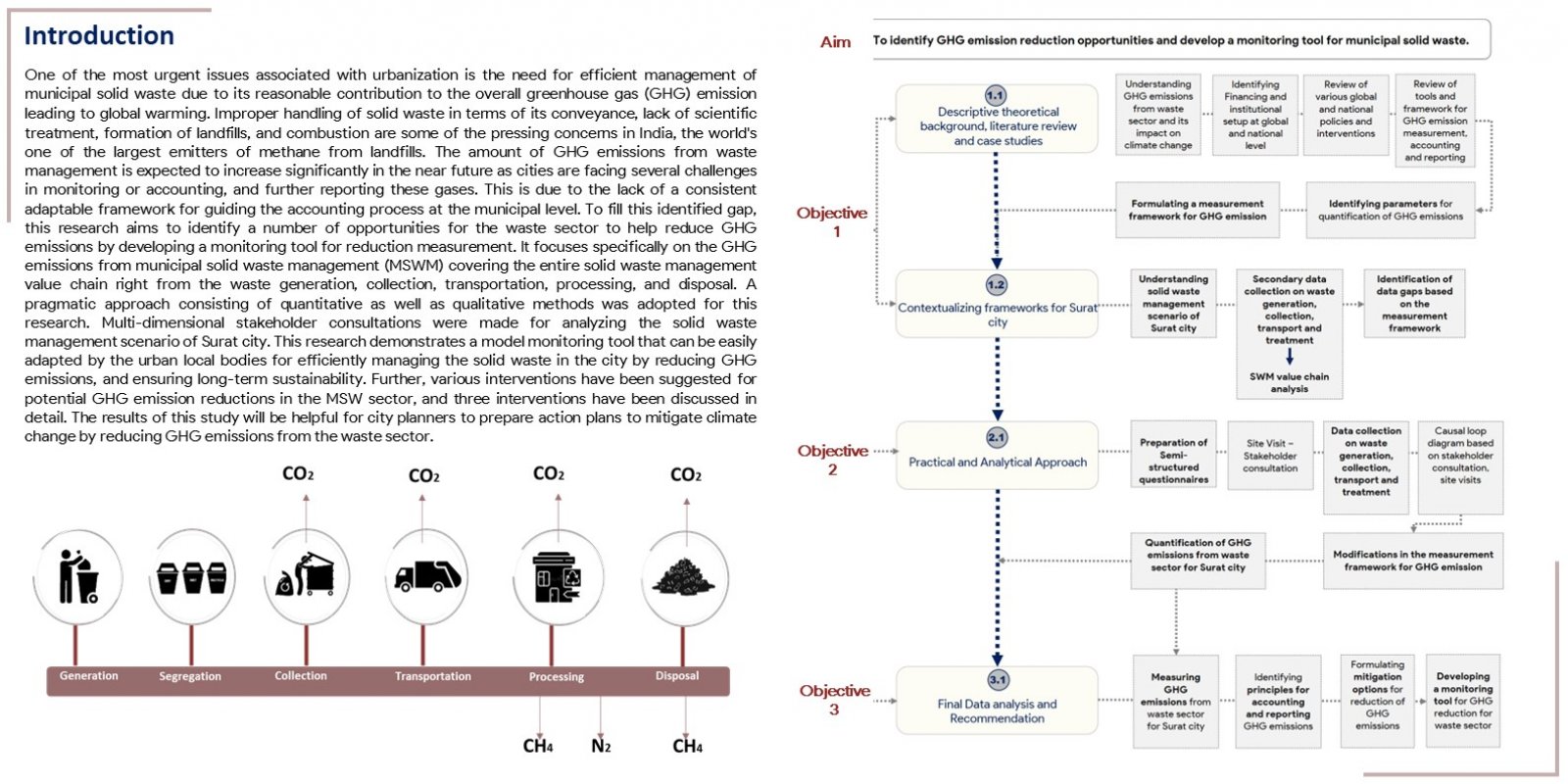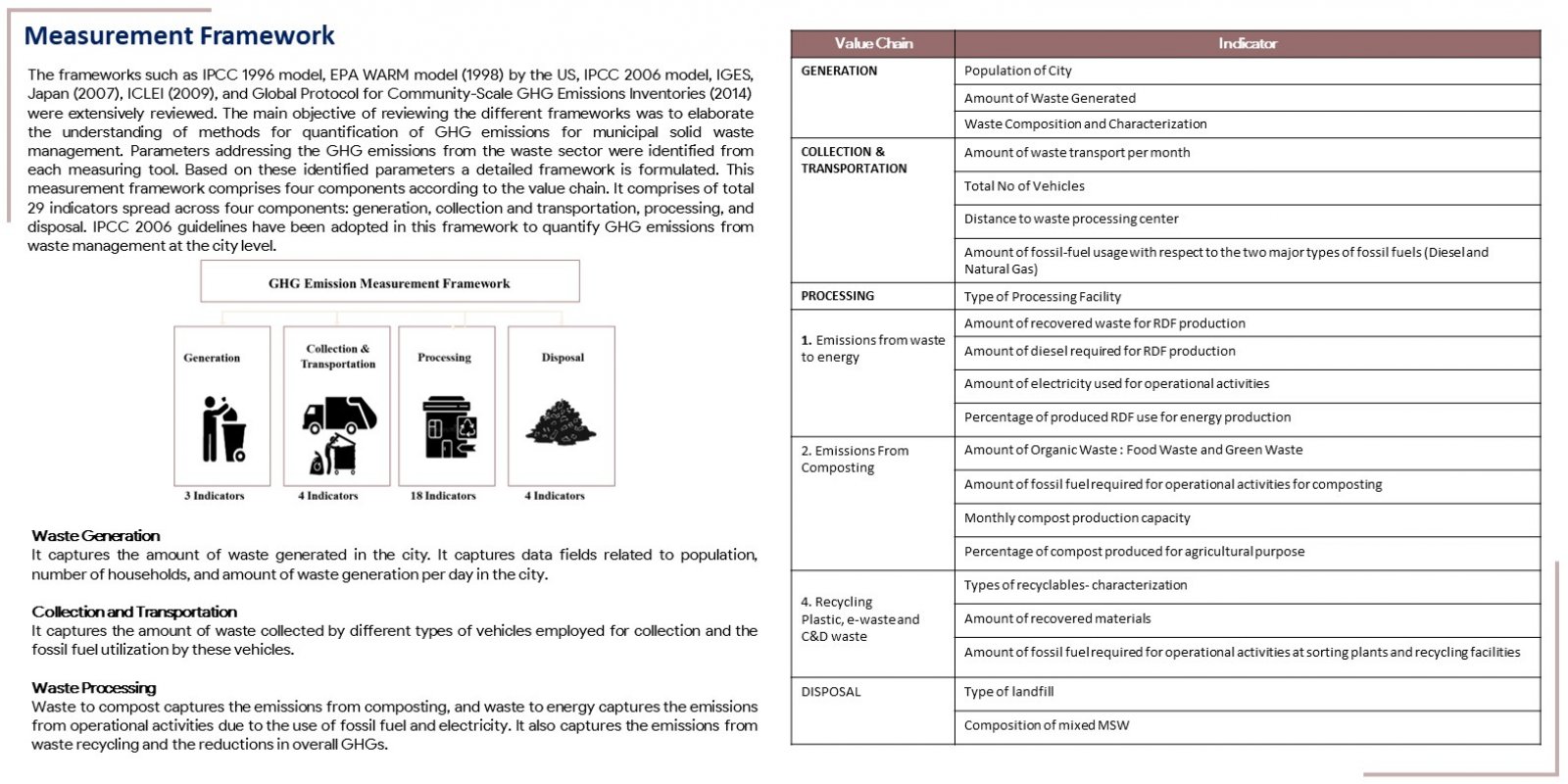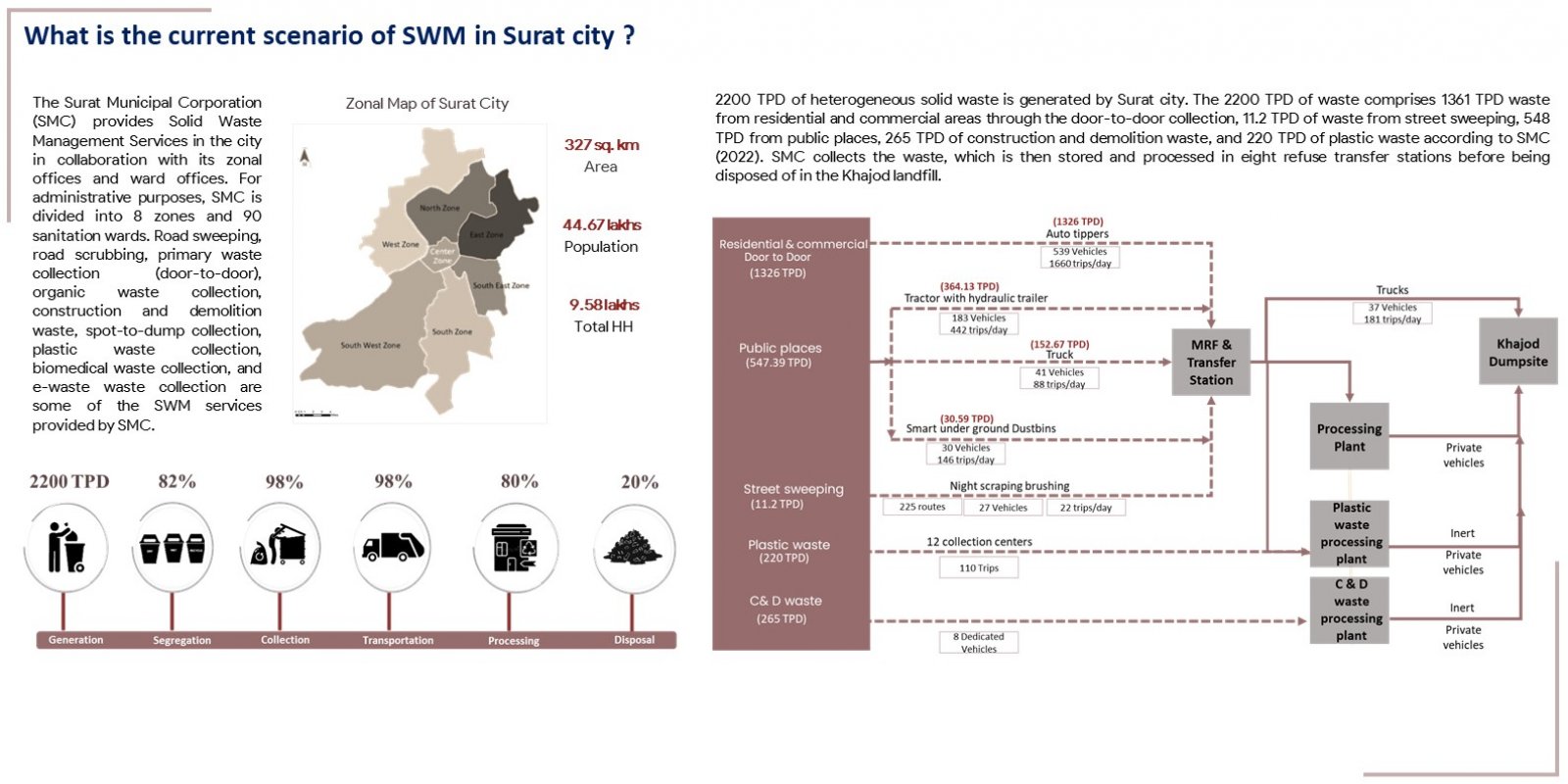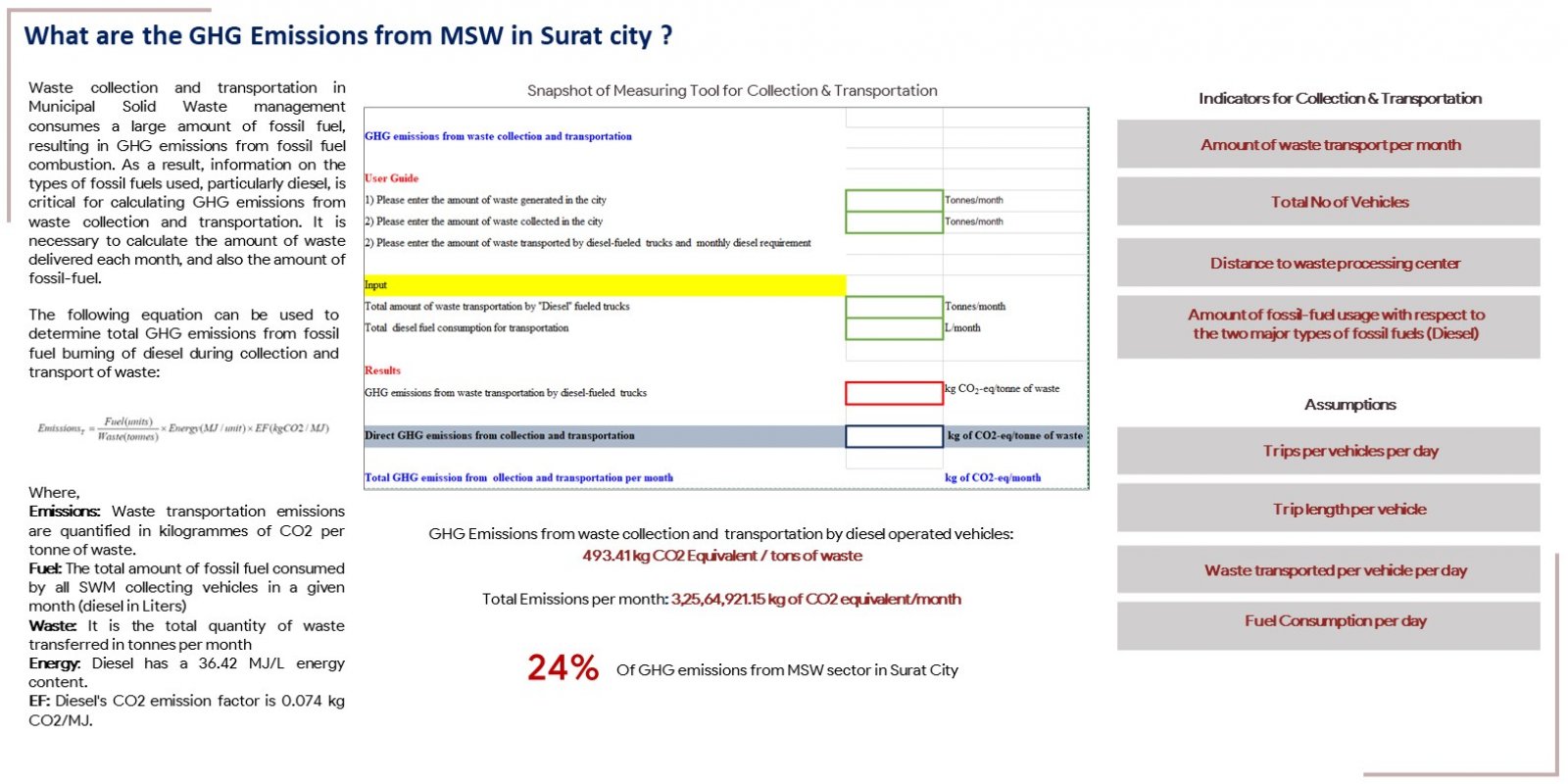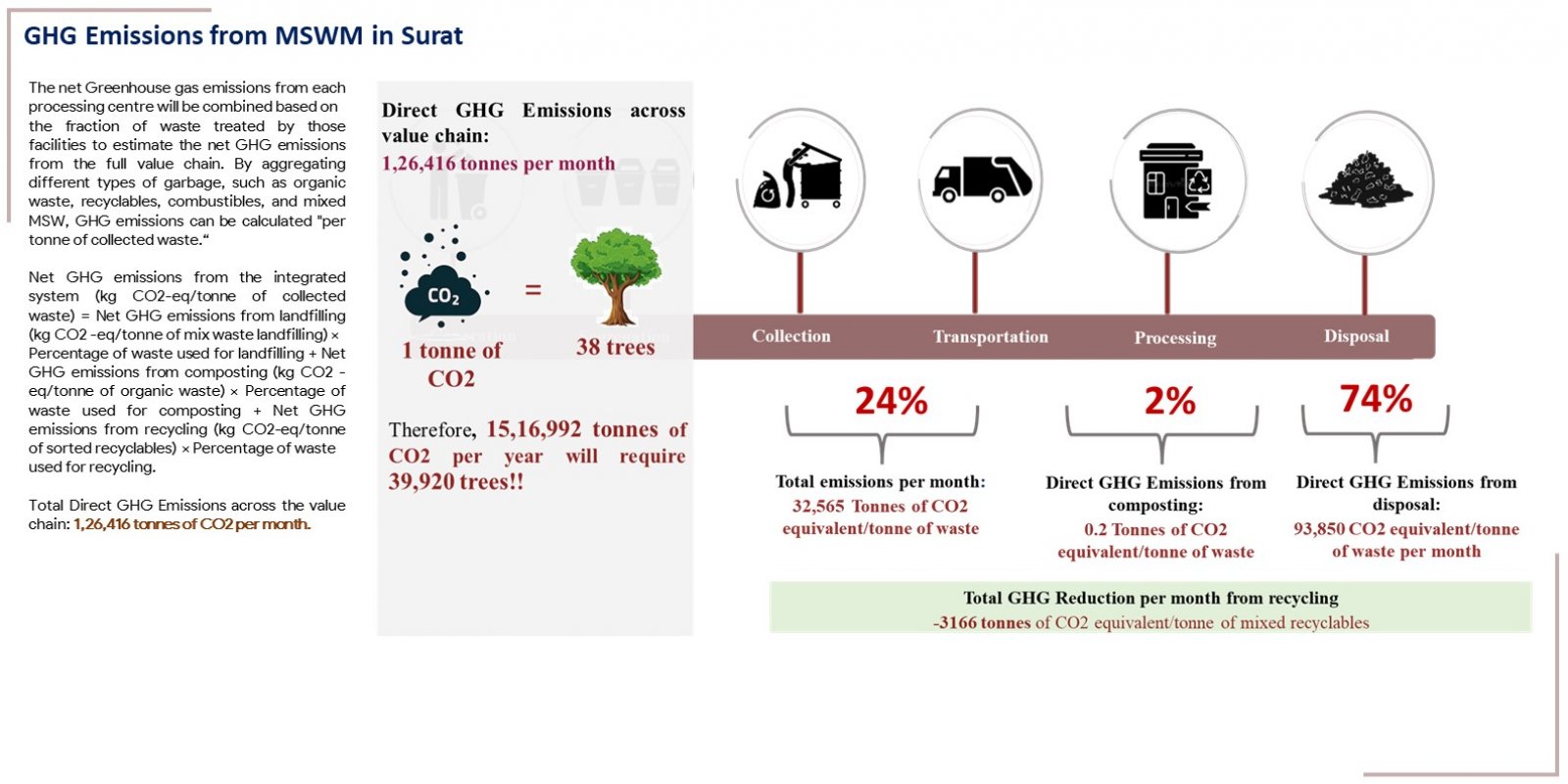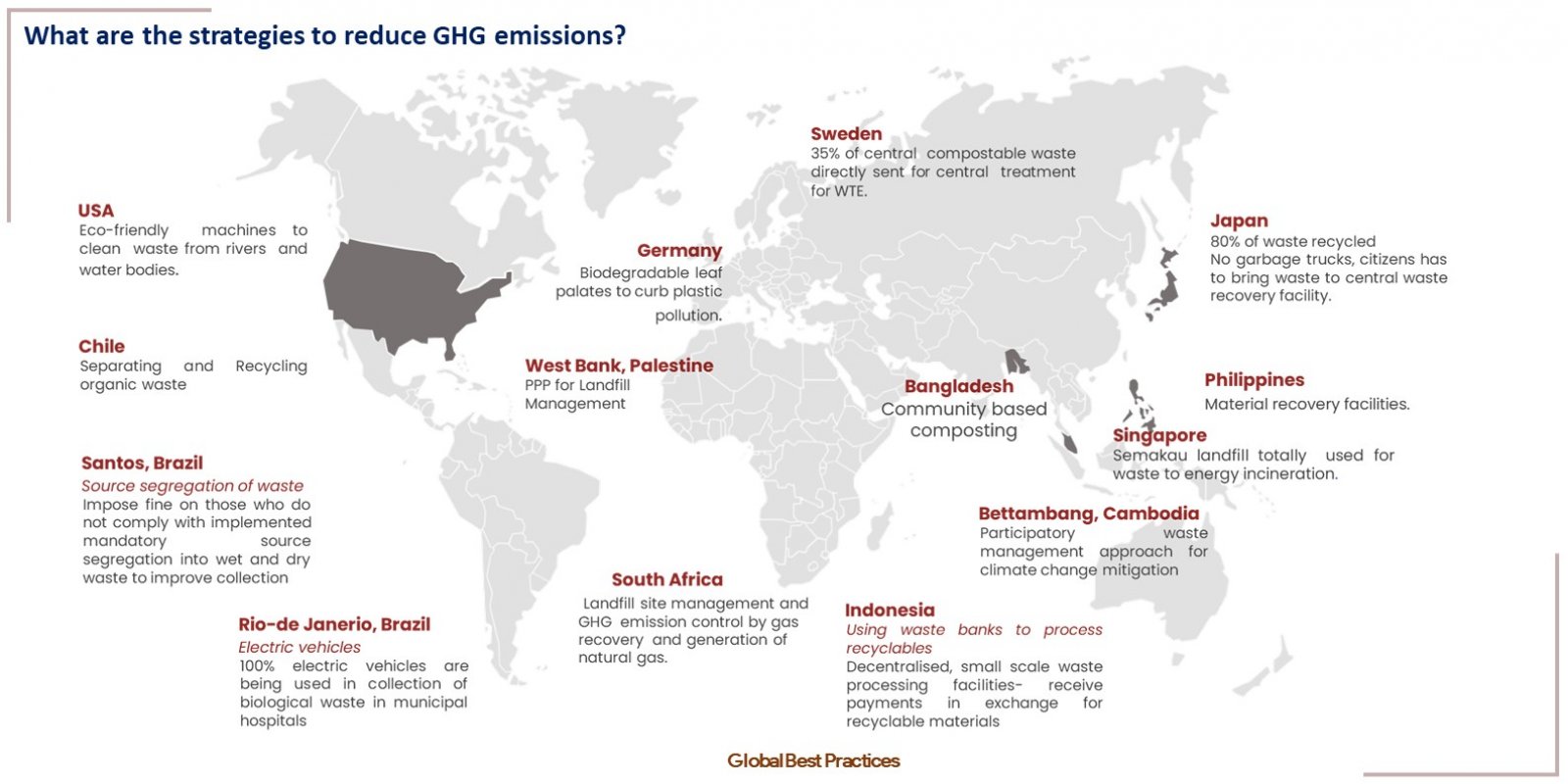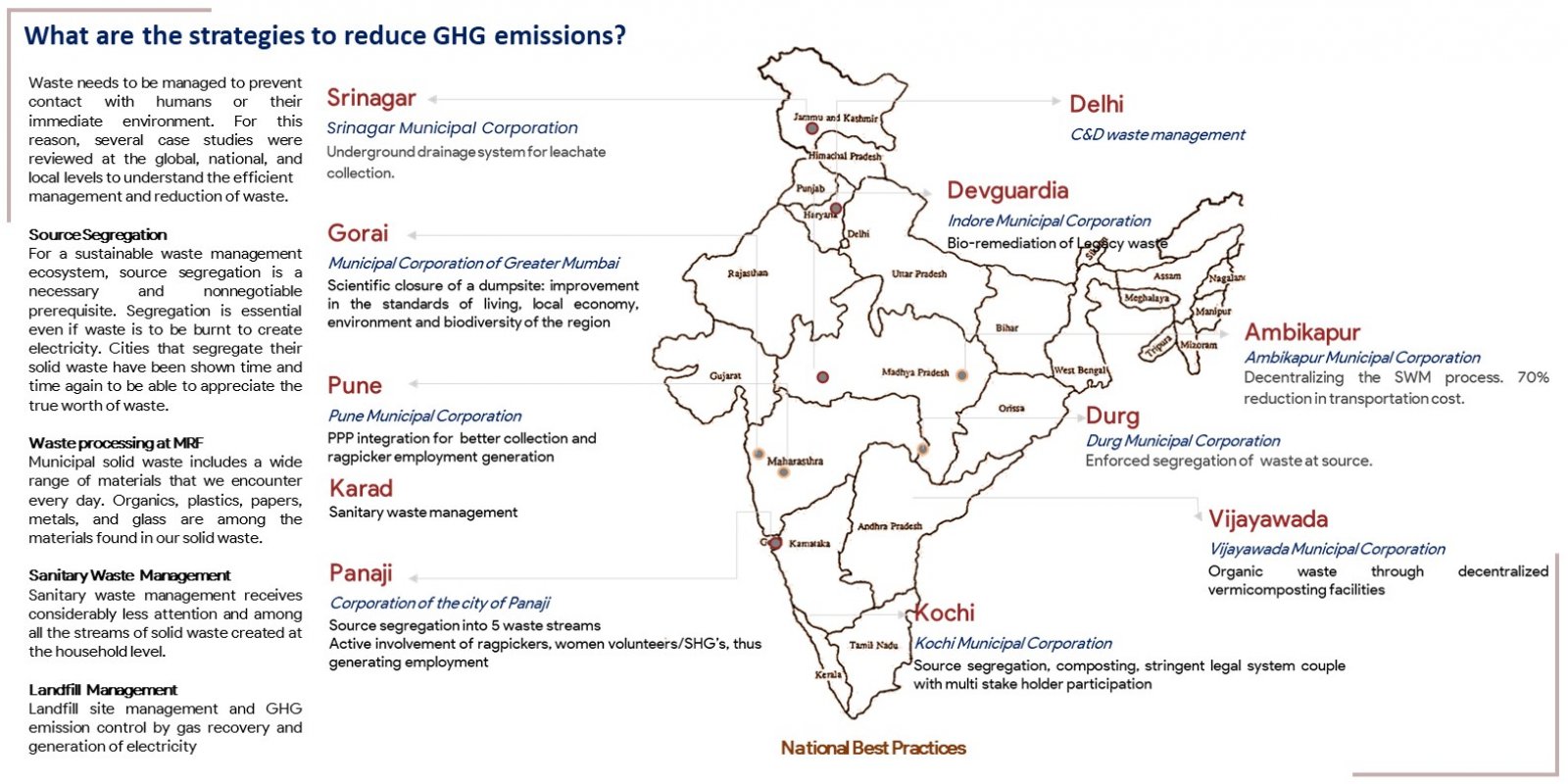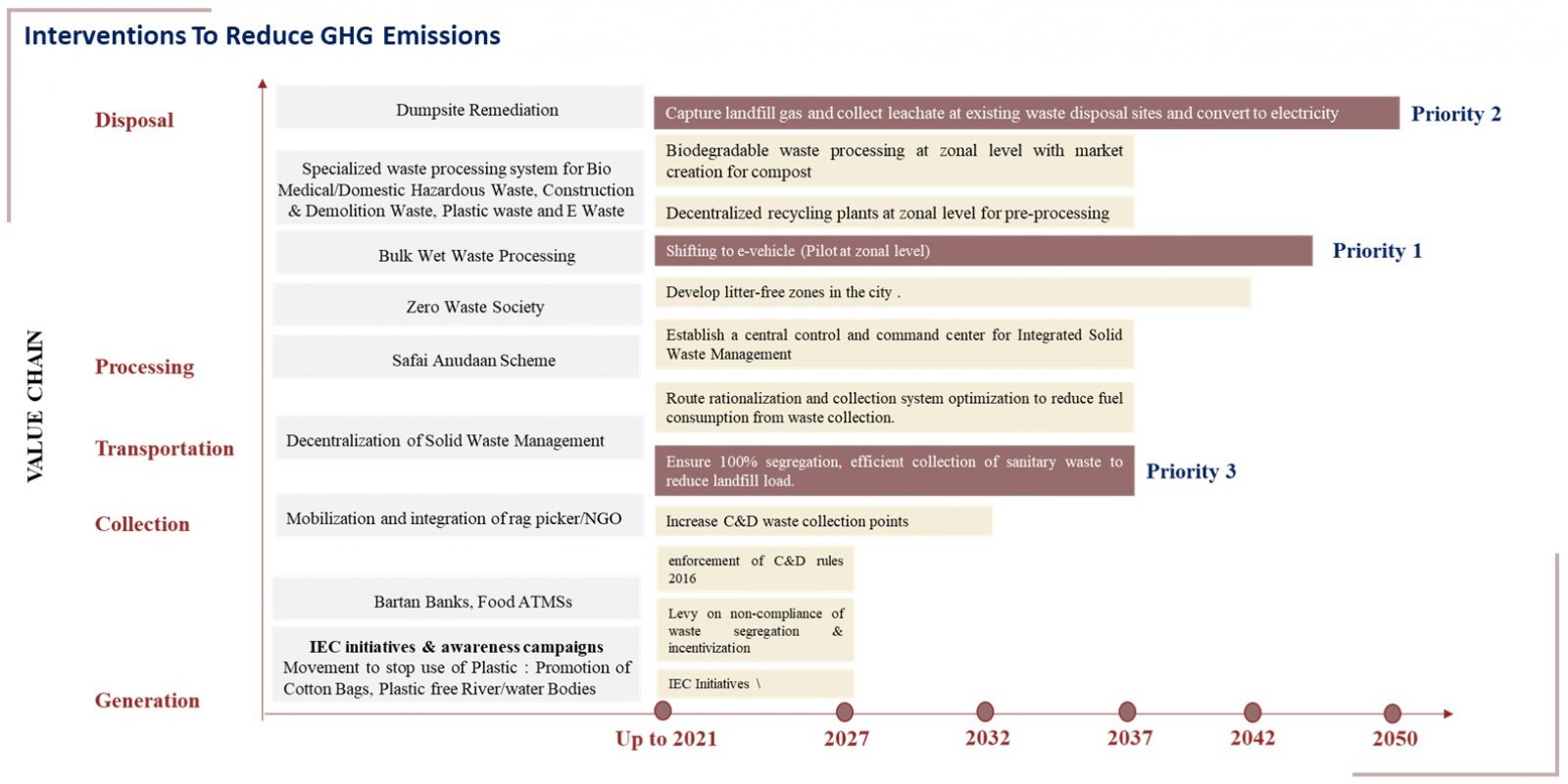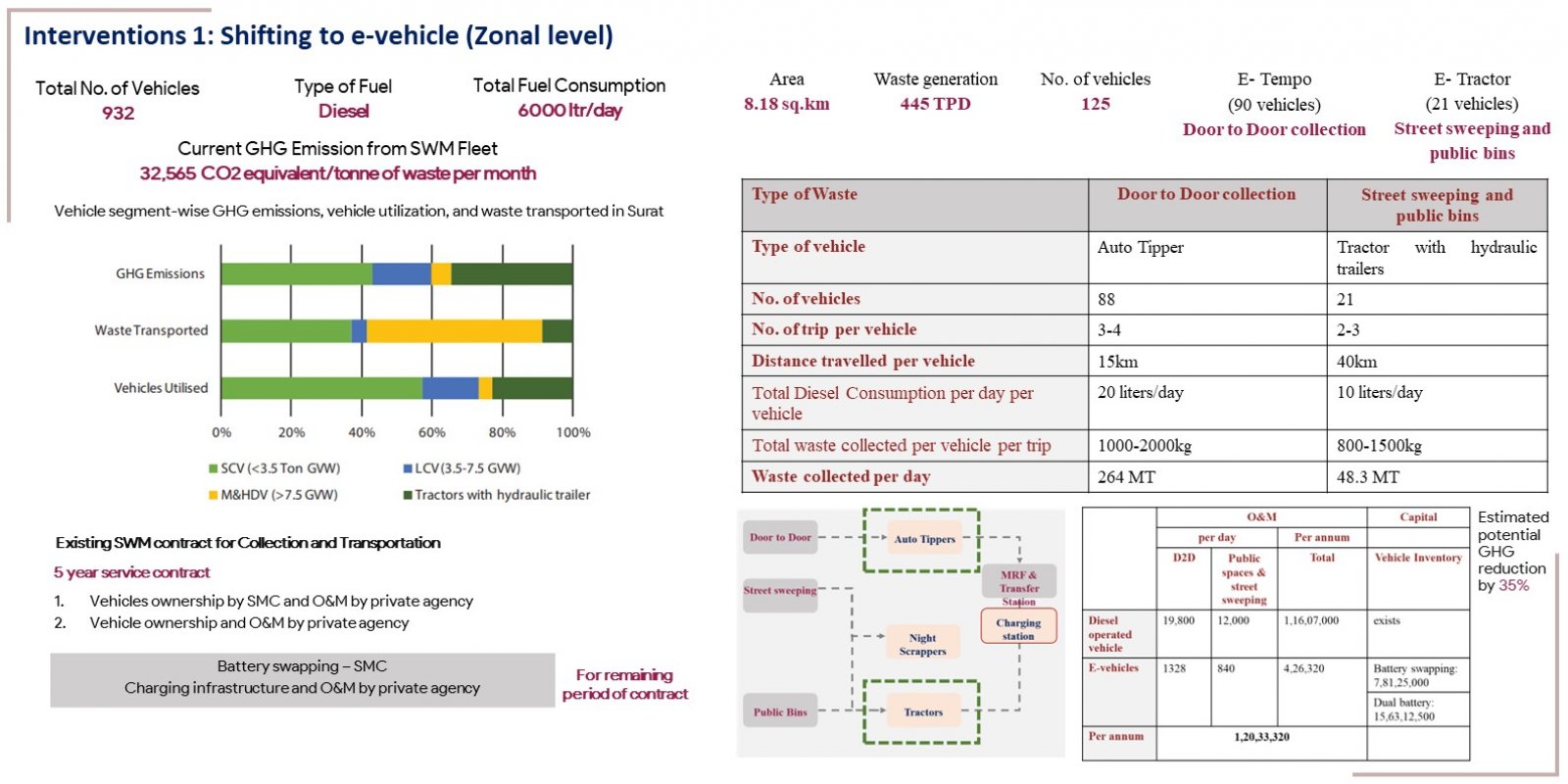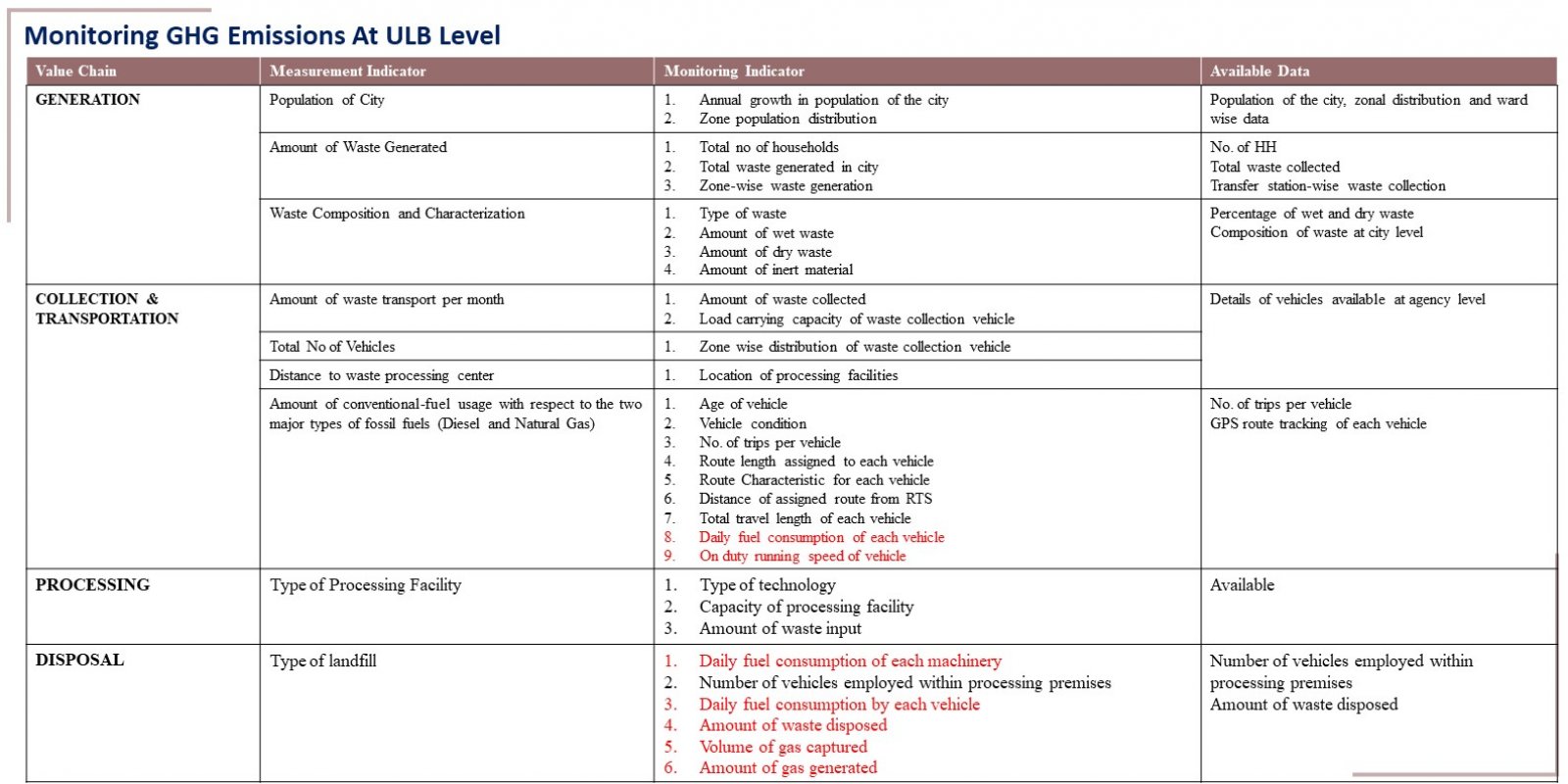Your browser is out-of-date!
For a richer surfing experience on our website, please update your browser. Update my browser now!
For a richer surfing experience on our website, please update your browser. Update my browser now!
One of the most urgent issues associated with urbanization is the need for efficient management of municipal solid waste due to its reasonable contribution to the overall greenhouse gas (GHG) emission leading to global warming. Improper handling of solid waste in terms of its conveyance, lack of scientific treatment, formation of landfills, and combustion are some of the pressing concerns in India, the world's one of the largest emitters of methane from landfills. The amount of GHG emissions from waste management is expected to increase significantly in the near future as cities are facing several challenges in monitoring or accounting, and further reporting these gases. This is due to the lack of a consistent adaptable framework for guiding the accounting process at the municipal level. To fill this identified gap, this research aims to identify a number of opportunities for the waste sector to help reduce GHG emissions by developing a monitoring tool for reduction measurement. It focuses specifically on the GHG emissions from municipal solid waste management (MSWM) covering the entire solid waste management value chain right from the waste generation, collection, transportation, processing, and disposal. A pragmatic approach consisting of quantitative as well as qualitative methods was adopted for this research. Multidimensional stakeholder consultations were made for analysing the solid waste management scenario of Surat city. This research demonstrates a model monitoring tool that can be easily adapted by the urban local bodies for efficiently managing the solid waste in the city by reducing GHG emissions, and ensuring long-term sustainability. Further, various interventions have been suggested for potential GHG emission reductions in the MSW sector, and three interventions have been discussed in detail. The results of this study will be helpful for city planners to prepare action plans to mitigate climate change by reducing GHG emissions from the waste sector.
